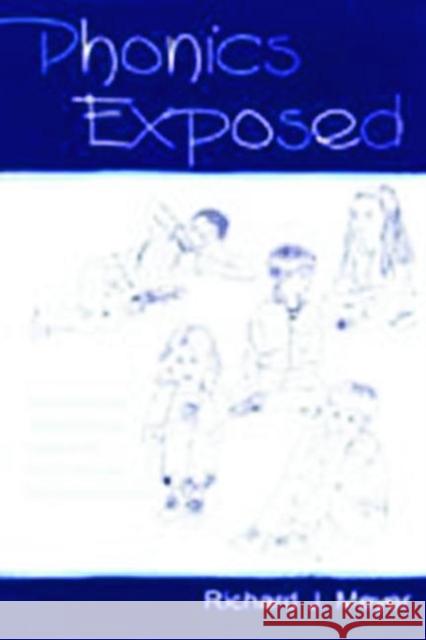Phonics Exposed: Understanding and Resisting Systematic Direct Intense Phonics Instruction » książka
Phonics Exposed: Understanding and Resisting Systematic Direct Intense Phonics Instruction
ISBN-13: 9780805839111 / Angielski / Miękka / 2001 / 200 str.
What are the implications of teaching phonics via a systematic direct intense program that mandates all children to experience the same scripted lesson at the same time?
This book addresses the question through an in-depth play-by-play description of a phonics lesson as it occurred in a real classroom, followed by chapters that look at it from different angles by "zooming in" on one facet to analyze it closely:
*Reading. What is reading? What definition of reading is presented (implicitly) in the phonics lesson? What do competing definitions from the reading research literature say about how important phonics rules are and how they are used by readers and teachers of reading?
*Teacher knowledge. What is the role and the place of teacher knowledge as it relates to the lesson? What are the skills a teacher has and needs to use in a lesson that is completely scripted ?
*The children. What are their roles and positions during the lesson? What are they learning?
*Curriculum. Where does the phonics curriculum come from? Curriculum in general? Who does it serve and how? What is its purpose?
* Culture. What is the role of culture in the lesson? How do cultural differences and culturally relevant pedagogy relate to the scripted phonics lesson?
*Politics and ideology. Why and how is everything that happens in schools political? How are scripted lessons and resistance to them, forms of political action?
*Teacher professionalism. How can teachers act in order to maintain academic freedom expressed as professional decision making in classrooms?
The author of this book is not neutral. He presents the difficulties a teacher encounters in implementing mandated systematic, direct, intense phonics instruction and children who are confused and frustrated by it. But at the same time he constantly presents hope in the form of smart teachers, curious children, and possibilities for taking action that can lead to change. His direct, accessible writing style stimulates thought and discussion.











